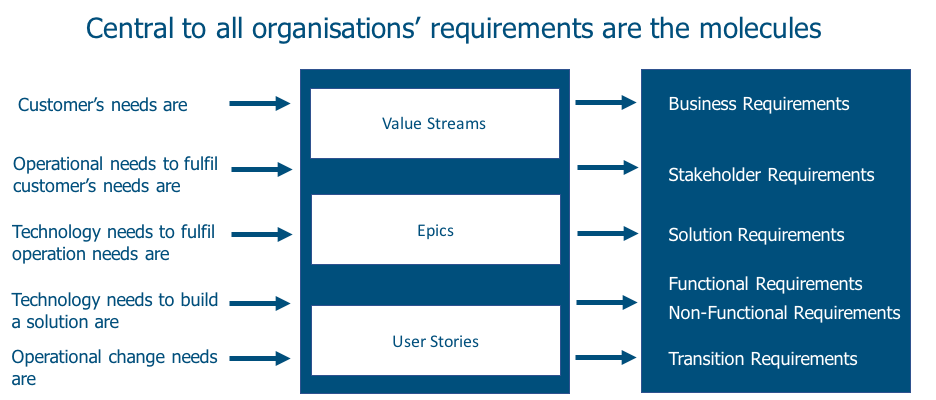
What a Business Analyst is not?
Many articles have been written about what a business analyst is—articles that define a business analyst as…
someone who helps stakeholders make decisions, facilitates, communicates, acts as a bridge between business and IT, etc.But any person in an organization can do this! Many other professions help stakeholders with decision-making, such as management consultants and business coaches. Very little has been written about what makes a business analyst different from any other person in an organization, role, or profession.
To me, a business analyst is someone who performs business analysis through eliciting, analyzing, specifying, and managing needs, value & requirements at a level of competency. If you can’t perform all four of these areas competently to deliver the business need, you are not a business analyst.
Statistics show that many people call themselves a Business Analyst—a simple search in LinkedIn displays over 80,000 people in Australia with the phrase in their title, and over 1.7 million in the rest of the world using the title “business analyst.”
The BABOK® Guide also states that “a business analyst is any person who performs business analysis tasks described in the BABOK® Guide, no matter their job title or organizational role.” The BABOK® Guide does not make the distinction of business analyst quality, competency, and experience breadth of tasks and techniques; however, the IIBA® certification and competency model does require breadth across the six knowledge areas (KA).
Evidence in the field strongly suggests good business analysis is more likely to be achieved by a business analyst who is well trained, industry aligned, certified, practice-supported, and experienced in multiple approaches and end-to-end business analysis across the BABOK® Guide.
Unfortunately, many individuals in our profession don’t understand how to connect eliciting, analyzing, specifying, and managing needs, value & requirements. I often observe individuals with the title “business analyst” or another specialist role (process analyst, business architect, project manager, business rules analyst, data analyst, etc.) performing some of these activities but not tightly coupling them to perform a high standard of business analysis.
There are also good business analysts not promoting themselves and giving a voice to the power of performing excellent business analysis. The connection of eliciting, analyzing, specifying, and managing requirements is hard work, but when performed well provides great value to organizations, saves wastage, and reduces failure.
You can perform excellent business analysis if your title is not “business analyst,” but you must have the underlying competencies of eliciting, analyzing, specifying, and managing requirements. Remember that being able to apply a Band-Aid does not make you a nurse.
Many professions perform elicitation—for example, teachers, doctors, and lawyers. Engineers, physicists, and process analysts perform analysis, while technical writers and solution architects specify. However, Business Analysts manage needs, value & requirements, tracing to join things to make sense of them. To manage requirements well, you need to plan, elicit, and analyze continuously—often under pressure.
Business Analysis In A Disruptive World: A New Frontier For Business Analysis Professionals, a discussion paper from IIBA & BCS, states, “As an example, the Agile Principle: ‘Business people and developers must work together daily throughout the project’ was interpreted as only developers and business stakeholders. Additionally, popular adaptive approaches don’t identify all key roles that are needed to successfully execute work in this way. As an example, SCRUM identifies two critical roles and everyone else is part of the development team. Misconceptions and misunderstanding led to organizations ignoring the need for business analysis expertise and assuming that developers and business stakeholders would jointly understand how to elicit requirements.”
Some Agile approaches assume team members will manage needs, value & requirements, even though many of those team members do not have the necessary skills, experiences, and competencies with requirements.
An expert business analyst requires a unique skillset that many senior executives have never experienced. Excellent business analysis is more likely to be achieved by a well-trained, certified, and practice supported business analyst. You need to know that you are engaging high-quality business analysts if you want a greater chance of project success.
Managing requirements occurs throughout any organization from strategy, operations, portfolios, programs, and projects, and a competent business analyst will improve requirement clarity, efficiency, and outcomes.

What is a business analyst?
Tracing is key to business analysis. If you can’t trace both forwards and backwards, then you can’t see moving parts and determine possible solutions for business issues or opportunities. In my opinion, this is the top skill that anyone performing business analysis needs.
A business analyst should be independent from managing or being accountable for the customer journey that the business analysis is being performed on. Giving well-analysed and synthesized options to stakeholders is better than making recommendations, as options give the ownership to the stakeholder.

Adrian Reed says “We need to focus on the benefits of business analysis rather than the tools or techniques. To draw a (deliberately) left-field analogy, if an airline said we maintain, fuel and fly aircraft, issue and validate tickets, specializing in transatlantic flights” that may well be accurate. But a far more compelling message is “We can fly you from Heathrow to JFK in 7 hours”.
I agree with Adrian we must explain the benefits of business analysis, but we must also add our point of different (POD) that sets us apart from any other profession. An excellent business analyst elicits, analyses specifies and manages needs, value & requirements effortlessly, somehow sorting the wood from the trees so that stakeholders can make informed business decisions.
In 2017, hopefully, all great business analysts stand up and perform excellent business analysis using the unique skill of managing needs, value & requirements to help organizations improve business performance!
늑대닷컴
… [Trackback]
[…] There you will find 72599 more Information on that Topic: batimes.com/articles/what-a-business-analyst-is-not/ […]